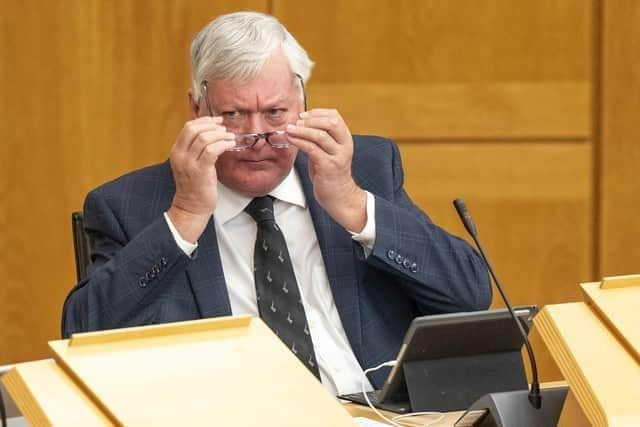SNP backbenchers rebel over plans for juryless rape trials
SNP backbenchers have rebelled over controversial Scottish Government plans for juryless rape trials.
Six nationalist MSPs abstained rather than vote for the wide-ranging Victims, Witnesses, and Justice Reform Bill on Tuesday. The legislation still passed its first stage at Holyrood, but the rebellion suggests changes may be needed at a later stage to pass it into law.
Advertisement
Hide AdAdvertisement
Hide AdMore MSPs abstained (62) than backed the legislation (60), with only the SNP and the Greens supporting it.


Former SNP leadership candidate Kate Forbes, Annabelle Ewing, Fergus Ewing, Christine Grahame, Ivan McKee and Michelle Thomson joined Conservative, Labour and Liberal Democrats by abstaining.
The Bill contains a raft of measures that would usher in major changes to Scotland’s justice system. As well as a pilot of juryless rape trials, it includes proposals to scrap Scotland’s unique “not proven” verdict.
One SNP rebel previously told The Scotsman the juryless trials pilot was the “most offensive” part of the legislation, adding: “It’s quite extraordinary.” They said the Government could be defeated at stage three unless changes were made. “[The Bill] will be dead in the water,” they added.
Tory MSP Russell Findlay said: “While we support some aspects of the Bill, such as our manifesto pledge to abolish not proven, we oppose others, including SNP plans for juryless trials.
“The Bill is far too big, complex and seeks to impose profound changes on the justice system with scant evidence and a real risk of unforeseen consequences. Our abstention sends a strong message to SNP ministers that they must start listening to our concerns and those of their own colleagues.”
Labour’s Pauline McNeill said her party too was opposed to the plans for juryless rape trials.
Meanwhile, with the legislation containing a number of proposed reforms, ranging from the introduction of a victims’ commissioner to a legal right to life-long anonymity for victims of sexual offences, both Labour and the Tories said the Bill was “frankly far too big”.
Advertisement
Hide AdAdvertisement
Hide AdMs McNeill said: “Scottish Labour supports the Government’s aims that it is time for change, but we believe that they need a comprehensive plan to look separately at each reform contained within the Bill. We believe there is too much substantial reform in one Bill.”
Angela Constance, the SNP justice secretary, previously said a pilot scheme for juryless rape trials would not go ahead until late 2028.
In a letter to Holyrood’s justice committee, she said: “Juries play a key role in Scotland’s justice system, but there is a compelling body of evidence that rape myths may influence the decisions that jurors reach in sexual offence cases.
“That is a risk to the administration of justice, which could in turn undermine public confidence in juries. We believe it is important that we examine the use of juries in rape cases and try to better understand the impacts they have – a time-limited pilot enables us to do that.”
Ms Constance said the Government would explore the possibility of a panel system for the pilot scheme, where two lay members sat alongside the judge to decide on rape cases. Conviction rates for rape are significantly lower than for other types of crimes.
